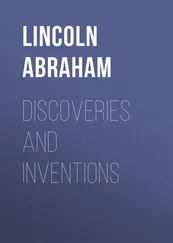Johann Beckmann - A History of Inventions, Discoveries, and Origins, Volume II (of 2)
Здесь есть возможность читать онлайн «Johann Beckmann - A History of Inventions, Discoveries, and Origins, Volume II (of 2)» — ознакомительный отрывок электронной книги совершенно бесплатно, а после прочтения отрывка купить полную версию. В некоторых случаях можно слушать аудио, скачать через торрент в формате fb2 и присутствует краткое содержание. Жанр: foreign_antique, foreign_prose, на английском языке. Описание произведения, (предисловие) а так же отзывы посетителей доступны на портале библиотеки ЛибКат.
- Название:A History of Inventions, Discoveries, and Origins, Volume II (of 2)
- Автор:
- Жанр:
- Год:неизвестен
- ISBN:нет данных
- Рейтинг книги:4 / 5. Голосов: 1
-
Избранное:Добавить в избранное
- Отзывы:
-
Ваша оценка:
- 80
- 1
- 2
- 3
- 4
- 5
A History of Inventions, Discoveries, and Origins, Volume II (of 2): краткое содержание, описание и аннотация
Предлагаем к чтению аннотацию, описание, краткое содержание или предисловие (зависит от того, что написал сам автор книги «A History of Inventions, Discoveries, and Origins, Volume II (of 2)»). Если вы не нашли необходимую информацию о книге — напишите в комментариях, мы постараемся отыскать её.
A History of Inventions, Discoveries, and Origins, Volume II (of 2) — читать онлайн ознакомительный отрывок
Ниже представлен текст книги, разбитый по страницам. Система сохранения места последней прочитанной страницы, позволяет с удобством читать онлайн бесплатно книгу «A History of Inventions, Discoveries, and Origins, Volume II (of 2)», без необходимости каждый раз заново искать на чём Вы остановились. Поставьте закладку, и сможете в любой момент перейти на страницу, на которой закончили чтение.
Интервал:
Закладка:
ARTIFICIAL ICE. COOLING LIQUORS
The art of preserving snow for cooling liquors during the summer, in warm countries, was known in the earliest ages. This practice is mentioned by Solomon 364 364 Proverbs, xxv. ver. 13.
, and proofs of it are so numerous in the works of the Greeks and the Romans, that it is unnecessary for me to quote them, especially as they have been collected by others 365 365 Bartholini de Nivis Usu Medico Observationes, Hafn. 1661.
. How the repositories for keeping it were constructed, we are not expressly told; but what I know on the subject I shall here lay before the reader.
That the snow was preserved in pits or trenches, is asserted by many 366 366 Seneca, Quæst. Natur. iv. 13.
. When Alexander the Great besieged the city of Petra, he caused thirty trenches to be dug and filled with snow, which was covered with oak branches, and which kept in that manner for a long time 367 367 Athenæus, iii. p. 124.
. Plutarch says that a covering of chaff and coarse cloth is sufficient 368 368 Sympos. vi. quæst. 6. – Augustinus De Civitate Dei, xxi. 4, p. 610.
; and at present a like method is pursued in Portugal. Where the snow has been collected in a deep gulf, some grass or green sods, covered with dung from the sheep-pens, is thrown over it; and under these it is so well preserved, that the whole summer through it is sent the distance of sixty Spanish miles to Lisbon 369 369 Mémoires Instructifs pour un Voyageur. How the snow repositories at Constantinople are constructed, is related by Bellon in his Observat. iii. 22.
.
When the ancients therefore wished to have cooling liquors, they either drank the melted snow or put some of it in their wine, or they placed jars filled with wine in the snow, and suffered it to cool there as long as they thought proper. It appears that in these trenches it could not remain long clean; on the contrary, it was generally so full of chaff, that the snow-water was somewhat coloured with it, and had a taste of it, and for this reason it was necessary to strain either it or the wine that had been cooled by it 370 370 The dissipated Heliogabalus caused whole mounts of snow to be heaped up in summer in order to cool the air. See Lampridius, Vita Heliogab. cap. 23.
.
That ice also was preserved for the like purpose, is probable from the testimony of various authors 371 371 Plin. xix. 4. – Latinus Pacatus in Panegyr. Theodos.
; but it appears not to have been used so much in warm countries as in the northern. Even at present snow is employed in Italy, Spain, and Portugal; but in Persia, ice 372 372 De la Valle, iii. p. 60, where the Persian ice-pits are described, as well as in Chardin, iv. p. 195.
. I have never anywhere found an account of Grecian or Roman ice-houses. By the writers on agriculture they are not mentioned.
Mankind however soon conceived the idea of cooling water without snow or ice, from having remarked that it became cold more speedily when it had been previously boiled, or at least warmed, and then put in a vessel among snow, or in a place much exposed to the air. Pliny seems to give this as an invention of Nero 373 373 Hist. Nat. xxxi. 3, 23, p. 552.
; and a jocular expression in Suetonius 374 374 Vita Neronis, cap. 48: Hæc est Neronis decocta.
makes it at any rate probable that he was fond of water cooled by this method; but it appears to be much older. It seems to have been known even to Hippocrates: at least Galen 375 375 In lib. vi. Hippocrat. de Morbis Vulgar. comment. 4, 10.
believes so. And Aristotle 376 376 Meteorol. i. cap. 12.
was undoubtedly acquainted with it; for he says that some were accustomed, when they wished water to become soon cold, to place it first in the sun and suffer it to grow warm. He relates also that, the fishermen near the Black Sea poured boiling water over the reeds which they used in fishing on the ice to cause them to freeze sooner. Galen 377 377 In the place before quoted.
on this subject is still more precise. He informs us that the above practice was not so much used in Italy and Greece, where snow could be procured, as in Egypt and other warm countries, where neither snow nor cool springs were to be found. The water after it had been boiled was put into earthen vessels or jars, and exposed in the evening on the upper part of the house to the night air. In the morning these vessels were put into the earth (perhaps in a pit), moistened on the outside with water, and then bound round with fresh or green plants, by which means the water could be preserved cool throughout the whole day. Athenæus 378 378 Deipnos. iii. p. 124.
, who gives a like account from a book of Protagorides, remarks, that the pitchers filled with water, which had become warm by standing all day long in the sun, were kept continually wet during the night, by servants destined to that office, and in the morning were bound round with straw. In the island of Cimolus 379 379 Ibid. p. 123.
, water which had become warm in the day-time was put into earthen jars, and deposited in a cool cellar, where it grew as cold as snow. It was generally believed therefore, that water which had been warmed or boiled, was soonest cooled, as well as acquired a greater degree of refrigeration; and on this account boiled water is mentioned so often in the works of the ancients 380 380 See Pitisci Lex. Antiq. Rom. under the word Decocta.
.
The same opinion prevails at present in the southern countries of Asia, and people there still let their water boil before they expose it to the air to cool 381 381 Philosoph. Transact. vol. lxv. part i. p. 126.
. The experiments however which have been made on this subject by philosophers, have proved very different in the result. When one indeed places boiling and cold water, all other circumstances being equal, in frosty air, the latter will become ice before the former has cooled; but when one exposes to the cold, water that has been boiled, and unboiled water of equal temperatures, the former will be converted into ice somewhat sooner.
The experiments made by Mariotte 382 382 Traité du Mouvement des Eaux.
, Perrault 383 383 Du Hamel, Hist. de l’Academ. l. i. c. 3, p. 99.
, the Academy del Cimento 384 384 Tentamina Experimentorum Acad. del Cim. p. 183.
, Marian 385 385 Dissertation sur la Glace. Paris, 1749, 12mo, p. 187.
and others, showed no perceptible difference in the time of freezing, between boiled and unboiled water; but the former produced ice harder and clearer, the latter ice more full of blisters. In later times, Dr. Black of Edinburgh has, from his experiments, asserted the contrary. Boiled water, he says, becomes ice sooner than unboiled, if the latter be left at perfect rest; but if the latter be stirred sometimes with a chocolate stick, it is converted into ice as soon as the former. This difference he explains in the following manner: – Some motion promotes congelation; this arises in the boiled water through its re-imbibing air; and therefore it must necessarily freeze before the unboiled, provided the latter be kept at perfect rest. Fahrenheit had before remarked that water not moved, would show a cold several degrees below the freezing-point, without becoming ice 386 386 Philosoph. Transact. vol. lxv. part i. p. 124.
.
M. Lichtenberg, with whom I conversed on these contradictory results, assured me that he was not surprised at this difference in the experiments. The time of congelation is regulated by circumstances, with which philosophers are not yet sufficiently acquainted. A certain, but not every degree of stirring hastens it; so that every icy particle which is formed on the side of the vessel, or which falls from the atmosphere, may convert the water sufficiently cooled into ice instantaneously; and such unavoidable accidents must, where all other circumstances are equal, cause a great difference in the period of freezing.
Читать дальшеИнтервал:
Закладка:
Похожие книги на «A History of Inventions, Discoveries, and Origins, Volume II (of 2)»
Представляем Вашему вниманию похожие книги на «A History of Inventions, Discoveries, and Origins, Volume II (of 2)» списком для выбора. Мы отобрали схожую по названию и смыслу литературу в надежде предоставить читателям больше вариантов отыскать новые, интересные, ещё непрочитанные произведения.
Обсуждение, отзывы о книге «A History of Inventions, Discoveries, and Origins, Volume II (of 2)» и просто собственные мнения читателей. Оставьте ваши комментарии, напишите, что Вы думаете о произведении, его смысле или главных героях. Укажите что конкретно понравилось, а что нет, и почему Вы так считаете.












